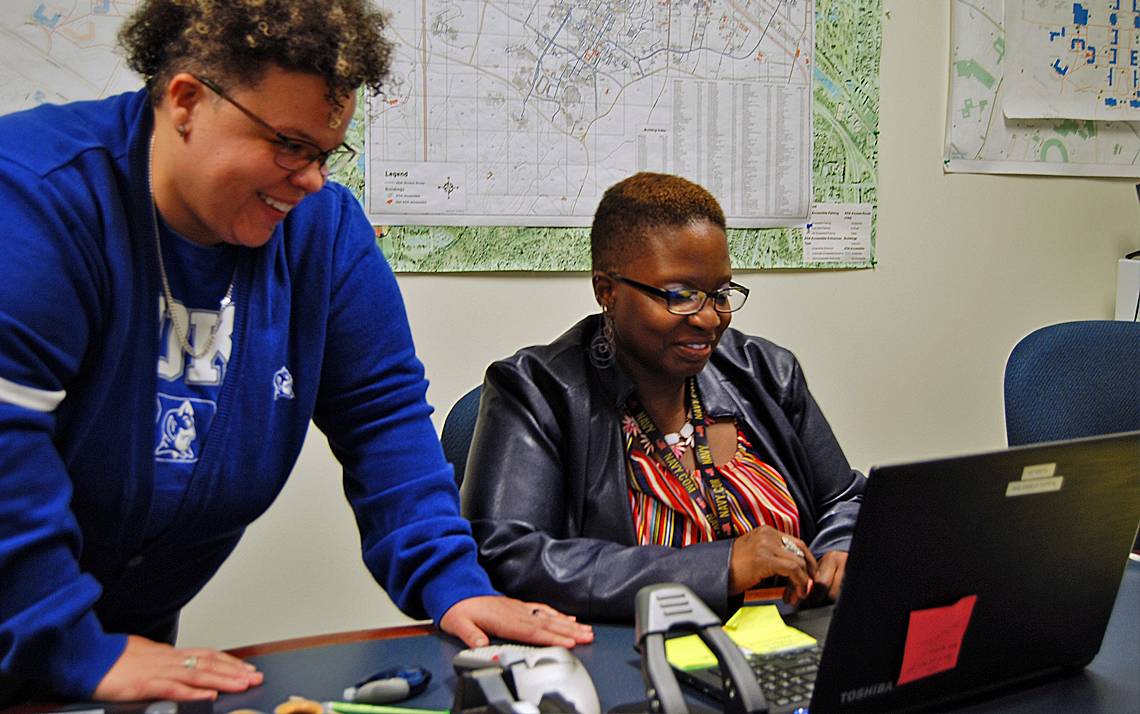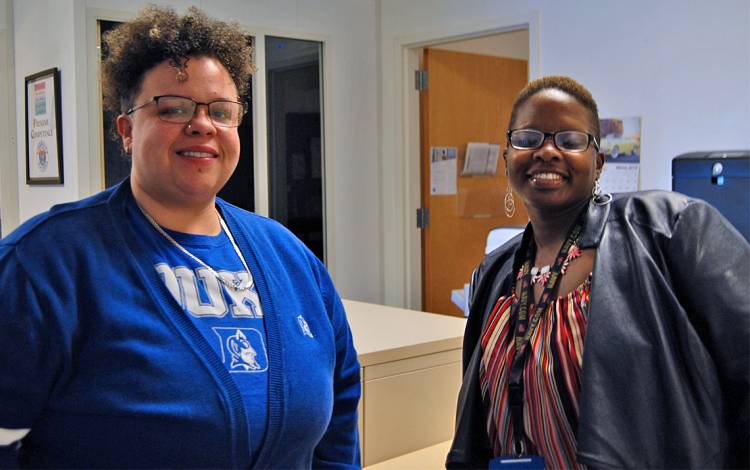Helpful Habits of Peer Leaders
Selflessness, resourcefulness and perspective can help make you indispensable

A large portion of a Duke program that prepares entry-level staff for careers in administrative settings involves pairing participants with employees in the jobs they’d eventually like to land.
As an organizer of the nine-month Foundational Skills Program, Gina Rogers, a practitioner with Duke's Learning & Organization Development, finds administrative support staff who serve as peer mentors. Rogers looks for people who can teach, empathize and inspire. She looks for people who, while not having management responsibilities, are effective influencers.
In essence, Rogers searches for leaders.
“Just because you may not have formal authority doesn’t mean you can’t have influence,” she said.
Across Duke, there are people who, because of versatility, reliability, experience and skill, have established themselves as indispensable parts of teams and tone-setters for colleagues.
We talked with a few of them to learn more about the qualities they bring to work.
Understand how your job affects others
When Rogers went looking for people to serve as peer mentors for the Foundational Skills Program, Ashley Robbins, staff assistant for Duke’s Disability Management System, was an easy choice.
Since coming to Duke in 2017, Robbins has embraced many responsibilities her job throws her way. She maintains schedules for department leaders, answers phone calls and greets visitors to the unit’s office.
Robbins doesn’t view these as simply part of her job, she sees excelling at these tasks as a way to help those around her be more effective.
“When students, faculty or other staff members come into the office, we’re the first people they see, we set the tone,” Robbins said. “We reflect the department as the first point of contact. So it’s our responsibility to set up our managers and co-workers for success.”
Always be ready to help
 At Duke’s Patient Revenue Management Organization, if a staff member has a question about anything that has to do with invoices, reimbursements or timecards, Angela Brooks likely has an answer.
At Duke’s Patient Revenue Management Organization, if a staff member has a question about anything that has to do with invoices, reimbursements or timecards, Angela Brooks likely has an answer.
Brooks, a payroll and accounts payable representative who’s worked at Duke for 24 years, has established herself as the authority on the office’s financial functions. And she’s always available to help her co-workers.
“I enjoy it,” Brooks said. “It’s just who I am. That’s me.”
Whether someone entered hours wrong or they’re having trouble filling out an expense form, she’s willing to lend a hand. And she hopes that attitude of selflessness sets the tone for people around her.
“If you can help someone, why wouldn’t you?” Brooks said. “I don’t mind assisting people. People know that if I can’t help them right then, I’ll get them to someone who can give them what they need, because one day, it could be me on the other end needing their assistance.”
Learn how best to share your knowledge
 Over the course of the nine-month Foundational Skills Program, Marquita Mangum, a housekeeper specialist for Housing and Residence Life, is spending time shadowing Ashley Robbins by working alongside her.
Over the course of the nine-month Foundational Skills Program, Marquita Mangum, a housekeeper specialist for Housing and Residence Life, is spending time shadowing Ashley Robbins by working alongside her.
“She’s been a great help, I’ve learned a lot,” Mangum said. “I told her she was my role model. She takes pride in what she does. That’s something I’ve learned in this program, how to take pride in my work and give 100 percent.”
in order to show Mangum how to do elements of her job, Robbins broke down tasks into manageable segments. Robbins wanted to help Mangum progress, but not overwhelm her. Robbins also gave a lot of thought about how to pass along information without coming across as condescending.
Robbins said teaching Mangum the basic elements of what she does also served as a way to refresh her own skills.
“I know what’s it’s like to want to do something else,” Robbins said of her motivation to help Mangum. “So I’m always eager to help somebody discover a new passion or work through moving on and moving up within Duke.”
Have a story idea or news to share? Share it with Working@Duke.